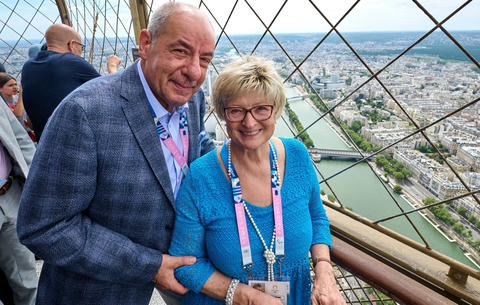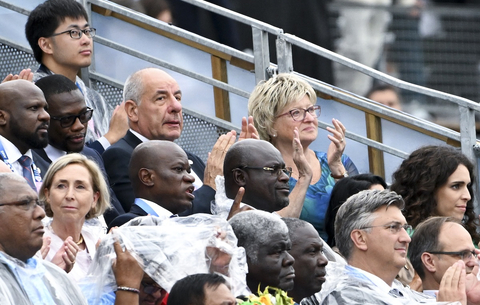Solving the Hungarian-Slovak conflict abroad
Hungarian-Slovak relations could be rebuilt from the ground up, but for as long as the Magyar Garda acts as cultural attache to our northern neighbours, and as long as Robert Fico and Jan Slota form our picture of the Slovaks and their thinking, then results are going to be scarce. And nor are people abroad very sympathetic to our position, argues Zoltan Novak, head of research at the Dignity Political Analyses Centre.
Ferenc Gyurcsany and Robert Fico's meeting in Komarno achieved few results. The Hungarian prime minister's proposals were received cooly, and the four-point joint declaration was fairly bland.
Ferenc Gyurcsany and Robert Fico © TASR |
Of course, it often happens that politicians emphasise their differences of opinion after a meeting, but normally these differences are summed up in a few sentences, after which achievements and options for the future are listed. This time it was different. The Slovak prime minister, after reciting the ritual list of achievements, delivered a kind of speech for the prosecution, listing his resentments and his concerns.
Afterwards, the Hungarian prime minister had to react to his partner's comments, and so he replied with Hungarian arguments and concerns. Had he not done so, reports would have focused on Hungary's claimed export of fascism. The Slovak prime minister then reacted to Gyurcsany's reaction. So, not only were the complaints listed, but, answering questions from the press, the two politicians entered a dialogue. The situation created a space where viewpoints could clash. It seemed that the Hungarian prime minister came out on top. Fico must have felt the same, because he later accused the Slovak press of behaving inappropriately at the press conference and of "serving foreign interests."
We should have learned by now, if only from American foreign policy, that the judgement of international public opinion can be decisive in dealing with a confrontation. You have to manage the differing interpretations of a situation, in such a way that your own interpretation becomes dominant. As far as international views of the Hungarian-Slovak conflict are concerned, so long as the European Parliament's Socialist group was putting pressure on the Slovak prime minister's party, the tone was different. Robert Fico asked repeatedly for meetings, which Ferenc Gyurcsany could tie to certain conditions.
This advantage has now disappeared, because foreign views on the conflict are far from straightforward.
We have to present the Hungarian angle over and over again. We have to choose our audience - one that can influence how things develop - and we have to package our own position in an easily digestable way. Part the symbolism is no longer in our favour. Uniformed men waering fascist symbols will get far more attention in the international media than Hungary's grievances. The issue of textbooks, for example, or indirect discrimination via legal or financial means, are much harder to package than a picture of a Slovak flag being burnt in Budapest.
It might be the case that we can only improve relations between the two countries from the bottom up. For instance, we could make social links closer, arrange joint cultural programmes, academic conferences.
Regional cooperation between communities on either side of the border could be strengthened with joint EU grant applications. Conflict management could be well served by a major Hungarian cultural festival in Slovakia.









